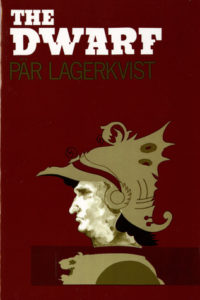“Human beings need flattery; otherwise they do not fulfill their purpose, not even in their own eyes,” said Piccoline, a 26-inch-tall dwarf who is the strange and misanthropic anti-hero of Pär Lagerkvist’s 1944 novel The Dwarf.
Lagerkvist—who was a Swedish poet, novelist, and playwright in the first half of the 20th century—won the Nobel Prize in 1951. Confronted by the horrors of two world wars and the rise of totalitarianism in many countries in Europe, Lagerkvist’s response was to delve deeply into the nature of evil and the question of how it can reside side by side with good in human nature.
Much of his work takes a dark view of the world. His first book of poems, Anguish, contains lines like “Anguish, anguish is my heritage/the wound of my throat/the cry of my heart in the world.” But in The Dwarf, Lagerkvist takes a more light-hearted approach.
Piccoline—sold into slavery by his mother when she found out he was a dwarf—serves an Italian prince who rules a city-state in Renaissance Italy. From his vantage point as a social outcast who is also an “insider,” Piccoline comments on the vain hopes, the absurd beliefs, and the foolish wars (which he happens to think are glorious) that the humans around him (he believes that dwarfs are another race from humans altogether) engage in.
“I have noticed that sometimes I frighten people,” he writes in his diary, noting that “what they really fear is themselves. They think it is I who scare them, but it is the dwarf within them, the ape-faced manlike being who sticks up his head from the depths of their souls.”
Written during the height of WWII, The Dwarf is not just a political analogy of the horrors of war, but also an insightful look at human nature itself.
Lagerkvist must-read:
The Dwarf
(UVic library code: PT9875-L2D93)

